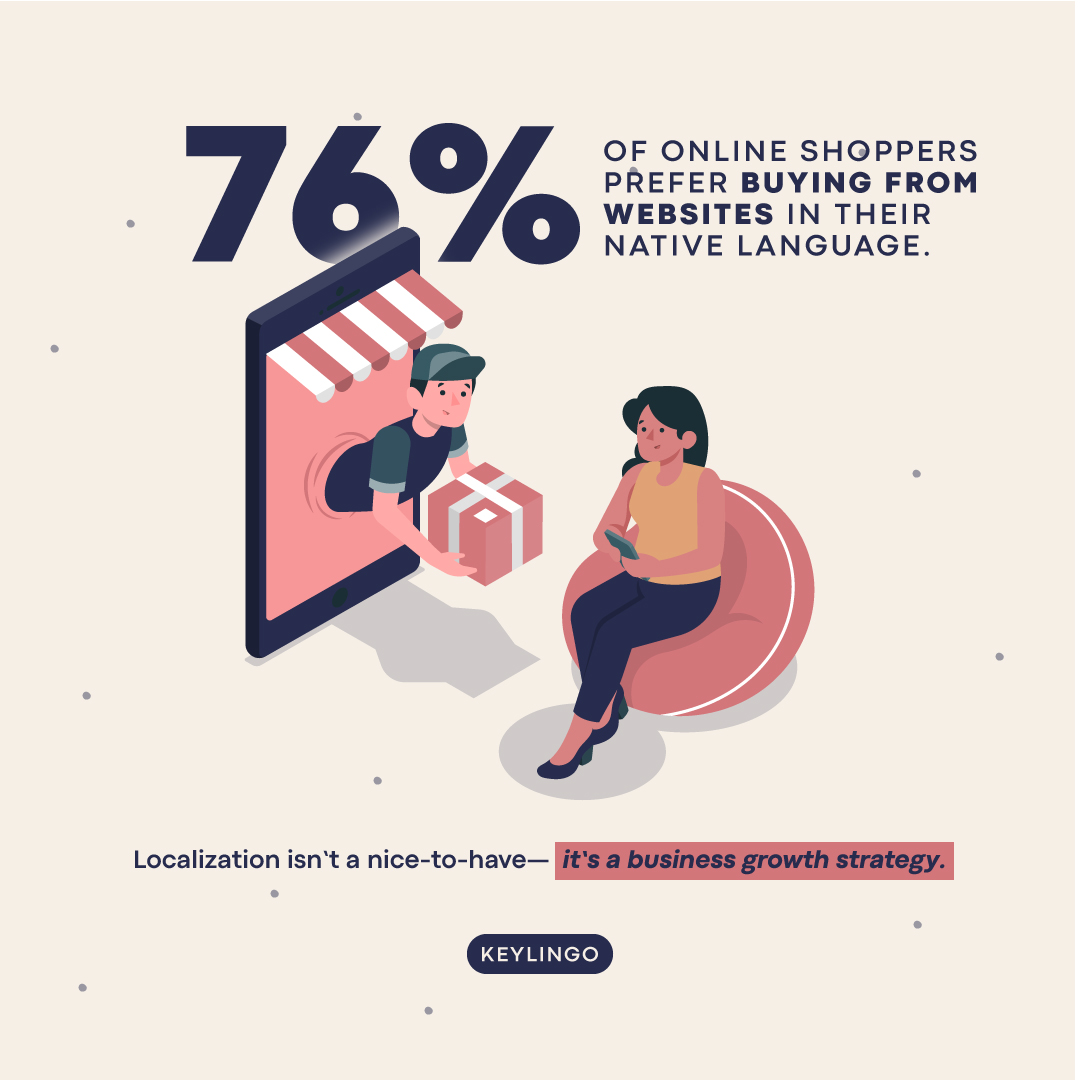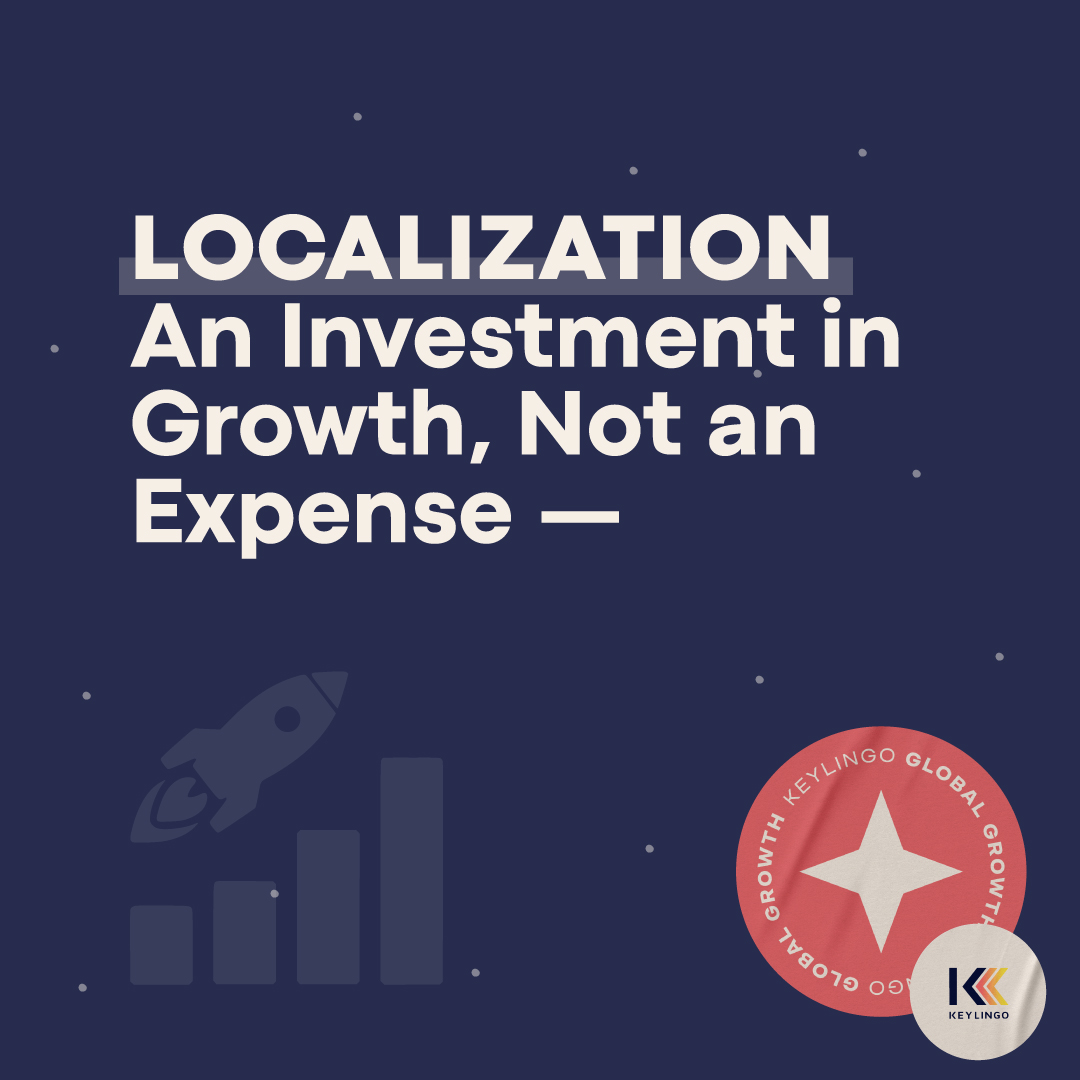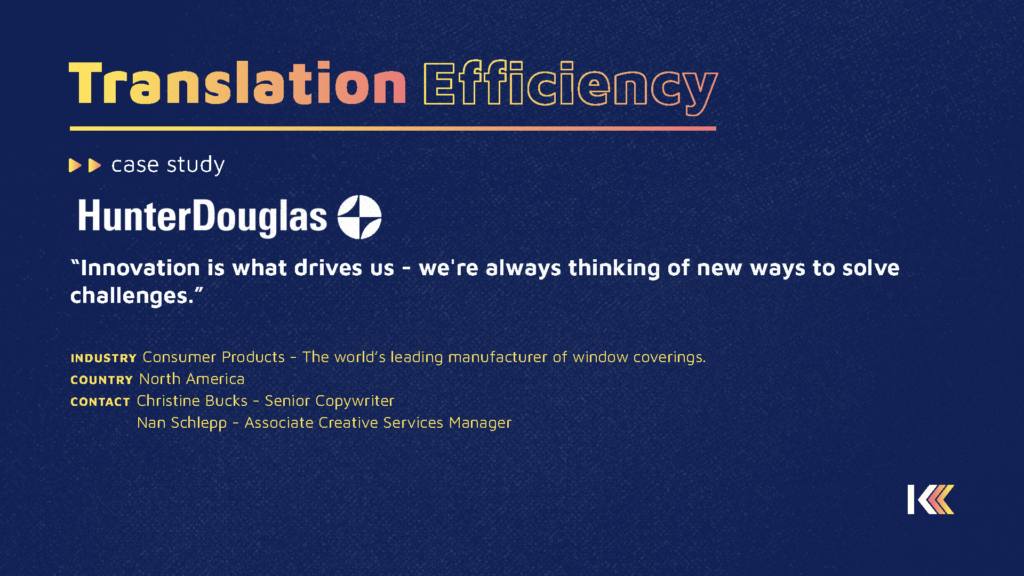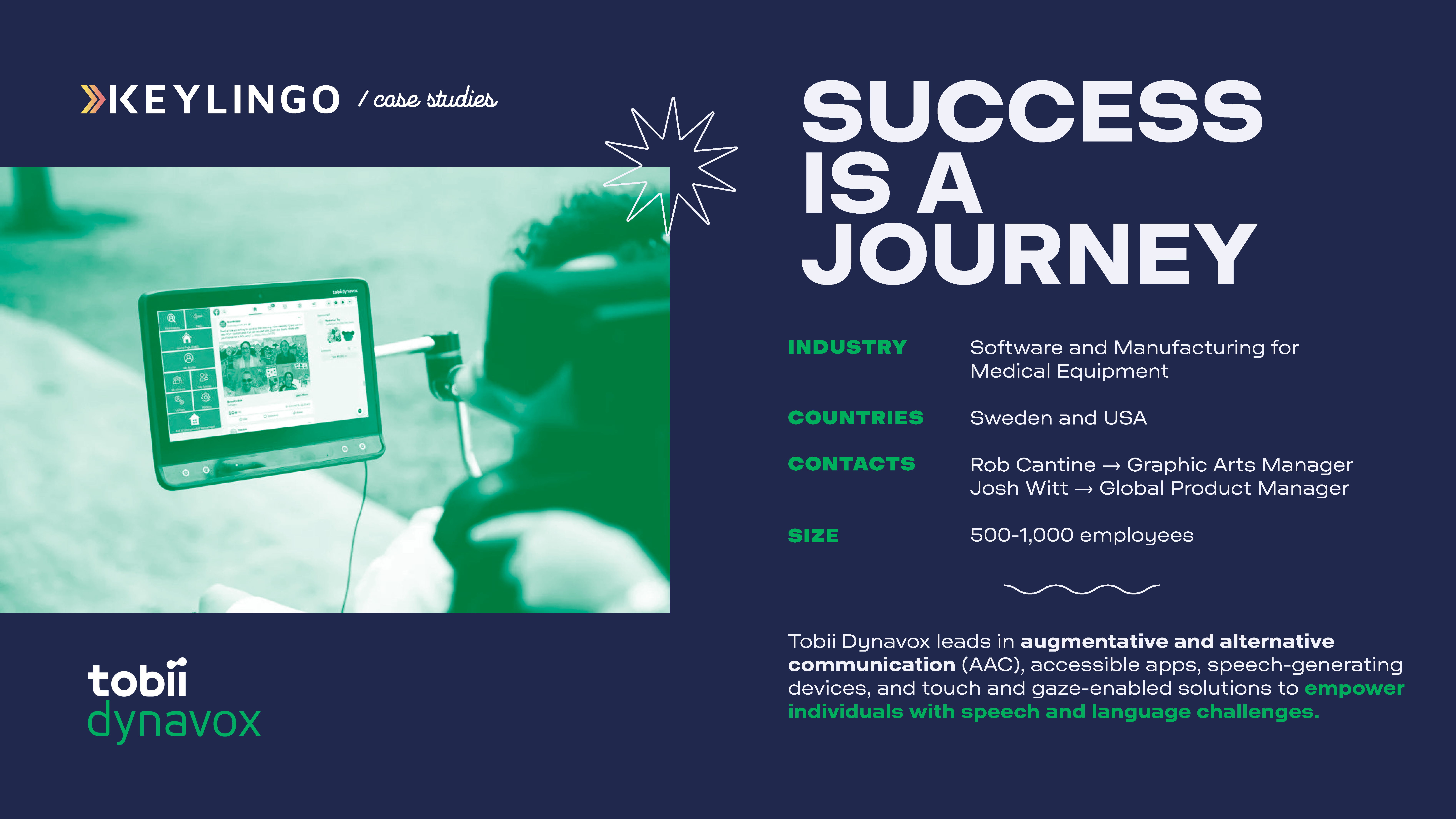Resources
Explore Keylingo's curated resources, delving into translation, multilingual content, AI, and more. Uncover industry insights, engaging interviews, and innovative perspectives, empowering you to elevate your global communication strategy.
Follow us on LinkedIn!
Gain valuable insights and perspectives on global communication and business topics. Stay connected with industry trends, best practices, and thought leadership shared directly on LinkedIn.
Does your team see localization as just another cost?
In reality, localization is a strategic investment that fuels global growth.
- Language is just the start
- Trust drives conversions
- Global success requires a local strategy
Bottom line? Localization isn’t an expense—it’s a growth strategy that makes your brand feel at home in every market.
Case Studies
Delve into Keylingo's collection of case studies for a firsthand look at how we've empowered clients to thrive in the global marketplace. Explore real-world examples showcasing our tailored solutions and our clients' success stories in thriving international markets.
Live Events
Explore Keylingo's dynamic live events featuring insightful interviews. Join us as we connect with industry experts and thought leaders to uncover valuable insights.
Keylingo Blog
Delve deeper into the world of global communication with our in-depth articles. Discover a wide range of topics, including industry insights, data-driven research, and practical strategies to help you navigate the ever-evolving business landscape.
“Déjà vu,” “Zeitgeist” and “Chutzpah”: How Translation Services Convey Shades of Meaning In-Between Words
There are certain languages that borrow freely from other languages. English, for example, has many words which originated in other languages. “Pajamas” comes from the Hindi word “pyjama” meaning a loose pair of drawstring pants. “Déjà vu” is a phrase obviously borrowed from the French. We also use words such as “zeitgeist” which comes from…
Masculine and Feminine Energy: Translation Services that Understand Gendering in Different Languages
Different languages have different rules. Whereas in English, non-living things are referred to as “it,” in languages such as French, they are referred to as “he” or “she” (“il” and “elle”). To someone who speaks English, it sounds odd to refer to a book as “he” but in French, this is de rigueur. A book…
Tolstoy, Freud and Homer: How Translation Services Bring Out Everyone’s Basic Humanity
When you translate a document, you are assuming that people essentially communicate in the same way. There are similarities between people the world over. Even if they may be citizens of different nations, speaking different languages, they still possess that basic quality of humanity. Their physical needs are similar, consisting of food, clothing and shelter.…
5 Signs That Your Business Needs Translation Services
Maybe you started out your business as a tiny mom-and-pop venture and grew it into something much bigger as time went on. Often, when a business is small, you make do with whatever means are at your disposal, from cheaper menus for your restaurant to a smaller office space for your growing NGO. However, as…
5 Things To Consider Before Getting Business Translation Services
If you’re planning to sell your product or service in another country where a language other than English is spoken, you’re going to need translation services. Even within the US, it is often necessary to translate brochures or flyers into different languages if you’re targeting communities where the first language isn’t English. Universities often translate…
Carpe Diem or “Seize the Day”: How Translation Services Can Turn Negative into Positive
It is interesting how phrases from a different language have come to be used a great deal in English. Consider, for example, the Latin phrase “carpe diem,” generally translated as “seize the day.” Perhaps if this phrase had originated in English, it may have sounded a little odd. How do you “seize” a day? “Seizing”…








